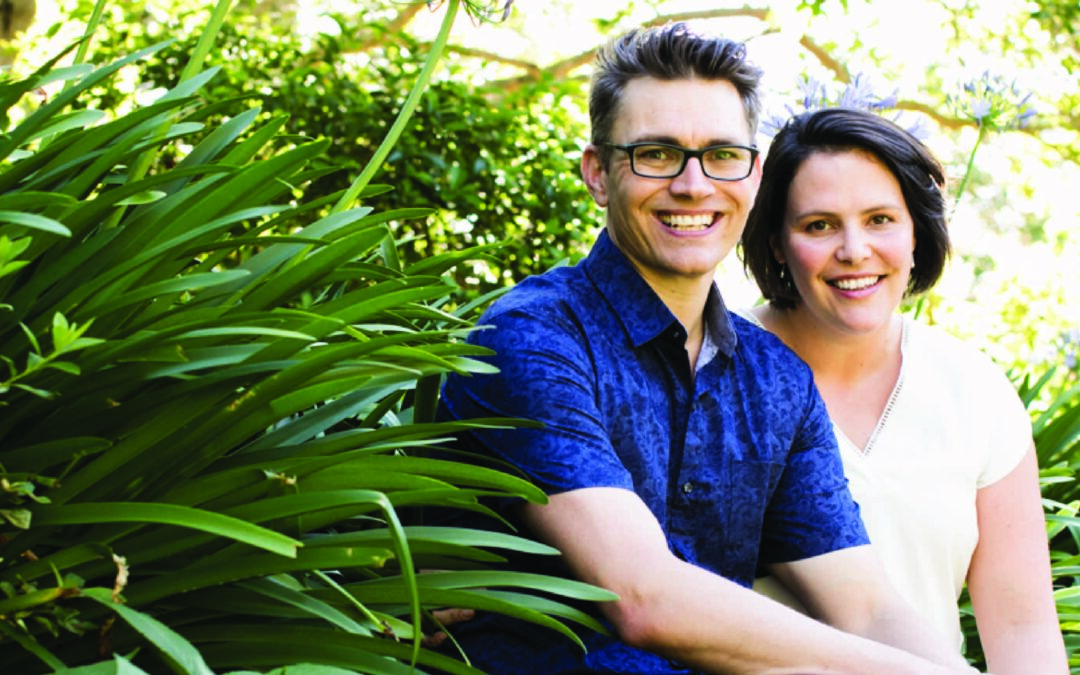Aron and Louise Mercer are an amazing couple who are innovative leaders of change in their respective fields. They were our guest speakers at our recent Imagine Series Event.
Aron knows how to sell things. During a commercial career with Salmat, Experian & Australia Post, Aron led sales teams servicing and partnering with ASX 50 organisations. He is passionate about business that blends profit and purpose. Aron has founded and advised several social enterprise start-ups.
Louise is a forward-thinker with leadership experience in insurance, financial services and not-for-profit industries. Her particular expertise is looking at the future to identify possible risks, then helping organisations identify how those risks can be seen as opportunities for innovation. She is also passionate about social enterprises and entrepreneurship, especially where technology can be used to solve problems in society.
Both Louise and Aron are great friends of Seed and valued members of our community.
Much of their work has been with businesses which have a social conscience, and this is motivated both by an awareness of privilege, and a biblical mandate:
“Both of us are acutely aware we have been given much. Growing up in Sydney, having the choice of which university to study and given opportunity in business. Travelling to places where we witnessed extreme poverty first hand certainly gave us a consciousness that much more could be done, and business was the most scalable and leverageable way we knew how to do it.
“Passages from Luke and Micah have also been important to us all the way along,” explains Louise, quoting them from memory:
‘From everyone who has been given much, much will be demanded; and from the one who has been entrusted with much, much more will be asked.’ (Luke 12:48)
‘He has shown you, O mortal, what is good. And what does the Lord require of you? To act justly, to love mercy and to walk humbly with your God.’ (Micah 6:8)
Our Imagine Series is all about the importance of imagination, and this is something they share. “We are both off-the-charts ‘iNtuition’ in Myers-Briggs, so we are both regularly cartwheeling through big ideas. New ideas, concepts and angles simply thrill us.”
They explain that imagination is necessary at multiple junctures of the entrepreneurial process. “While the business concept and vision are the most well known, having imagination is a great asset for thinking through alternatives when you are in a tight spot, when you need empathy for customers or processes, or when the stakes are high.”
Aron and Louise have three tips for exercising imagination:
- Creative processes can often be significantly amplified if you can sustain ‘both/and’ between different and compelling and sometimes contradictory ideas over a period of time. Sit in the middle of the ambiguity and make something of it.
- You rarely just have one ‘great idea’ for a business — much more commonly you are iterating on, testing, refining and transforming a range of good ideas into great ones.
- Execution is the essential companion to great ideas. So, don’t be too precious about your ideas: shop your ideas, talk about them, market test them. You’re rarely at risk of having them ‘stolen’, rather the race is to test and mature them quickly, then execute well on the great ones.
They explain that it is possible to develop your muscles of imagination and innovation. “Expose yourself to a diverse range of inputs — read widely, engage with lots of different people, and be insanely curious about those differences. ‘Masters of Scale’ by Reid Hoffman is a great podcast for those venturing in new businesses.
“Mindset is critical — you have to get an objective perspective on what you presently might be ‘subject’ to. That means noticing the points of friction in your own life and thinking ‘how might we..?’ And — in human centred design — it means deep empathy with others.”
Aron is working on Xceptional, a business which places those on the autistic spectrum in highly technical software testing and engineering roles. “We found that Incredibly deep empathy is required to understand life for those candidates and how to design effective recruitment and training processes,” he explains.

